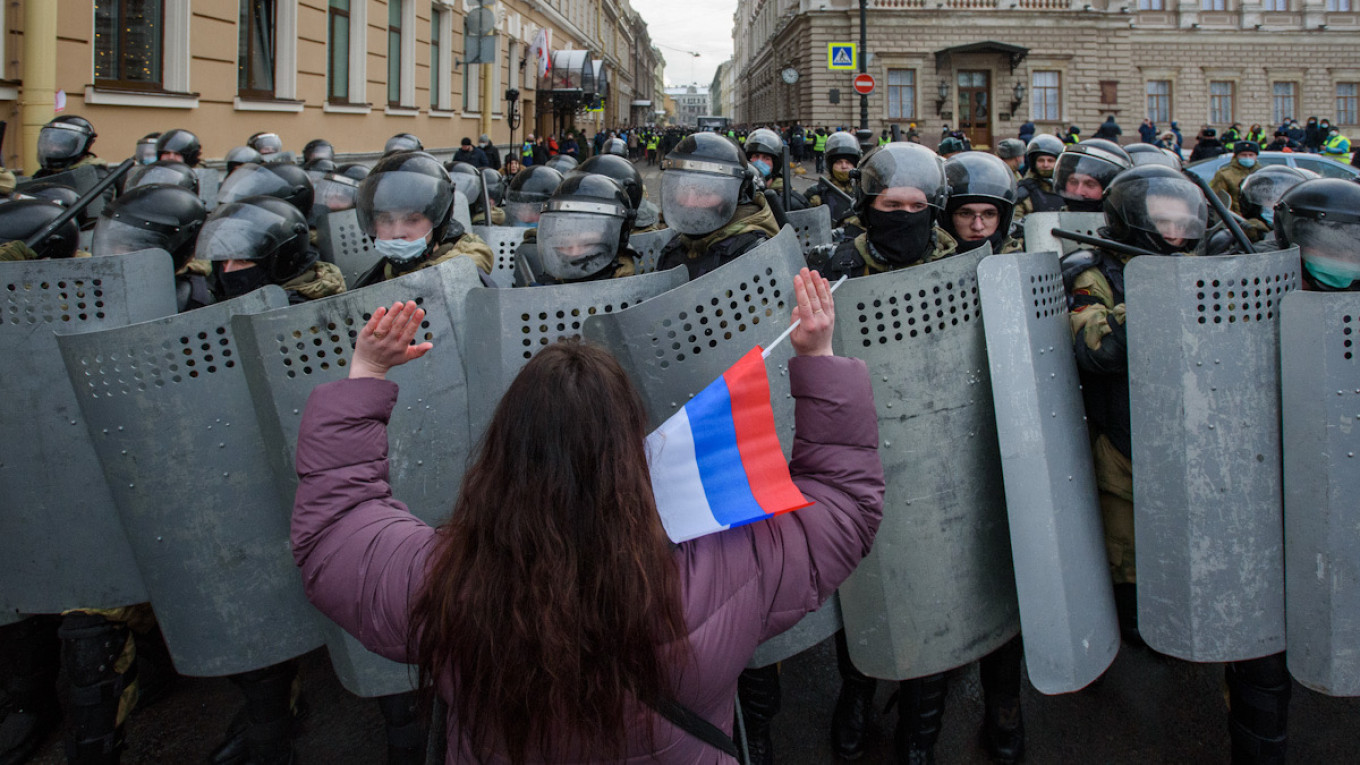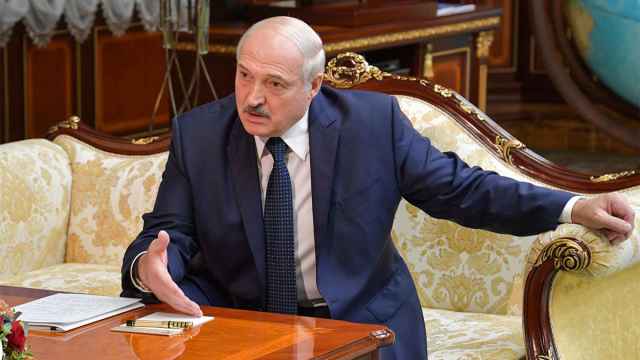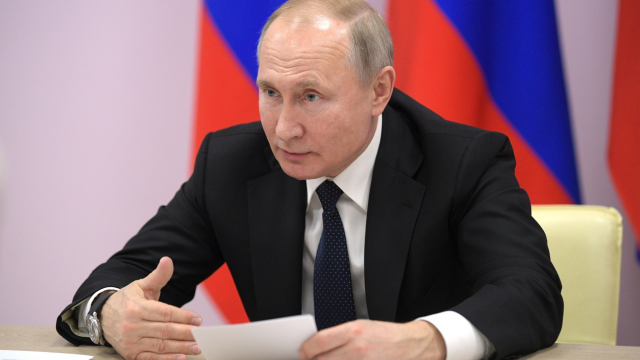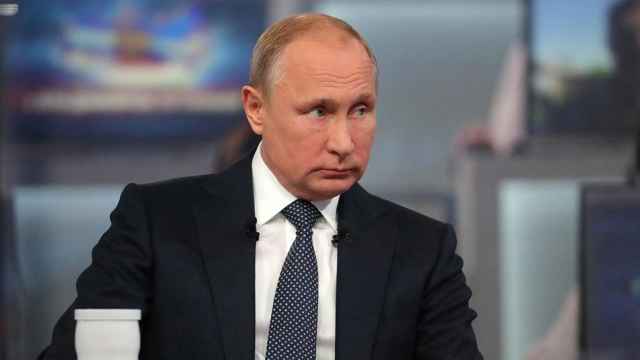Russian President Vladimir Putin has signed a handful of new laws Wednesday that impose heavy fines on protesters and “foreign agents,” as well as on social media giants accused of “discriminating” against Russian media.
Observers have described legislators’ recent activity as part of the Kremlin's efforts to tighten restrictions on dissent ahead of this fall’s parliamentary elections, which will take place amid simmering public anger over falling incomes.
Here’s a look at some of the laws that Putin approved in a post-holiday signing spree:
— Unruly protesters
Putin increased fines for protesters who are found guilty of disobeying law enforcement orders to between 2,000 and 4,000 rubles ($27 and $55, respectively). Repeat violations are subject to fines of 10,000-20,000 rubles ($135-270) or up to 30 days in jail.
Putin also imposed fines of up to 20,000 rubles for violating fundraising rules while organizing protests, including for money transfers by nonprofits labeled as “foreign agents.”
— ‘Foreign agent’ mentions
Russians can now be fined up to 2,500 rubles for sharing information about “foreign agents” or republishing their work without referring to them with the designation.
The “foreign agents” themselves, including politically active individuals or organizations, can be fined up to half a million rubles ($6,800) for publishing their own materials without the “foreign agent” label.
The law takes effect March 1.
— ‘Prejudiced’ IT giants
Social media giants YouTube, Facebook and Twitter can now be fined up to 1 million rubles ($13,600) for ignoring government warnings about prejudice toward Russian users. Repeat violations are subject to fines of up to 3 million rubles ($41,000).
Previously passed legislation already allows Russia to block platforms that are found to “discriminate” against Russian media.
A separate piece of Putin’s newly signed IT law also imposes fines of up to half a million rubles for first-time violations of Russia’s push toward internet “sovereignty.” Repeat violations carry fines of up to 1 million rubles.
A Message from The Moscow Times:
Dear readers,
We are facing unprecedented challenges. Russia's Prosecutor General's Office has designated The Moscow Times as an "undesirable" organization, criminalizing our work and putting our staff at risk of prosecution. This follows our earlier unjust labeling as a "foreign agent."
These actions are direct attempts to silence independent journalism in Russia. The authorities claim our work "discredits the decisions of the Russian leadership." We see things differently: we strive to provide accurate, unbiased reporting on Russia.
We, the journalists of The Moscow Times, refuse to be silenced. But to continue our work, we need your help.
Your support, no matter how small, makes a world of difference. If you can, please support us monthly starting from just $2. It's quick to set up, and every contribution makes a significant impact.
By supporting The Moscow Times, you're defending open, independent journalism in the face of repression. Thank you for standing with us.
Remind me later.






